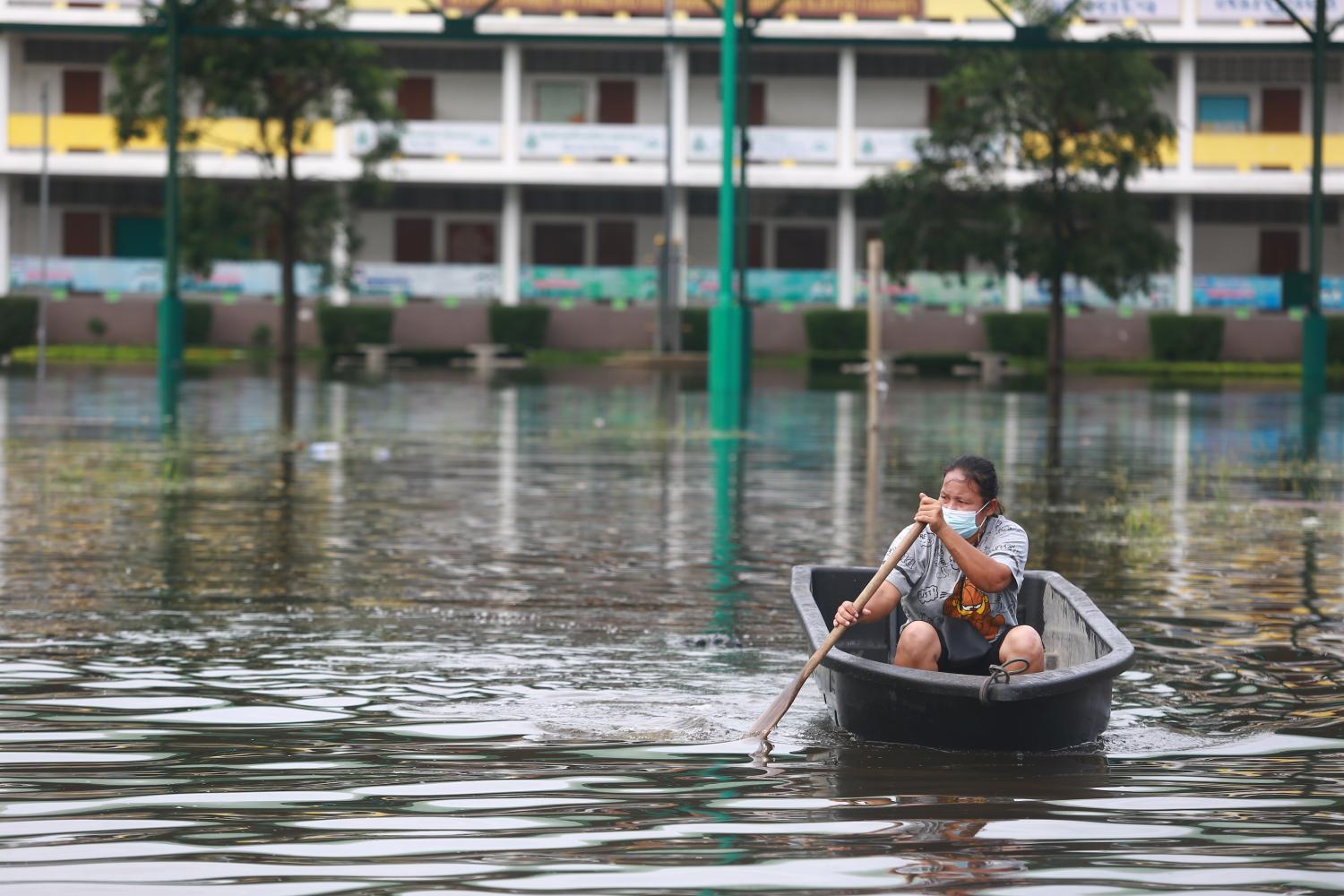
In the past decade, climate-related extreme weather events have wreaked havoc upon Thailand. Ten years ago, Thailand faced its worst ever flooding which killed more than 800 and caused over 1.4 trillion baht in damage.
This year, Thailand again experienced widespread flooding, affecting over one million and killing at least 14 people. The 2019-2020 drought cost the country about 50 billion baht or 0.3% of GDP, and caused the output of sugar, one of the country's most important crops, to fall by around 30%. While climate change was not the only cause of these events, it did contribute significantly to them. Overall, Thailand's high level of vulnerability to climate change is evident in the latest Global Climate Risk Index. The index ranks the country an alarming 9th place globally in terms of how much countries have been affected by climate-related, extreme weather events from 2000-2019.
Simultaneously, from 2009-2019, Thailand's carbon emissions rose significantly and the country ranks in the top 20 nations globally in terms of greenhouse gas emissions. Thailand's emissions per person have also risen by over 50% in the past two decades and now are slightly above average for the global population. Bangkok ranks as one of the higher-emitting cities in the world per capita, with its residents emitting more per person than those in London and Milan.
The COP26 conference on climate change is an opportunity for Thailand to show the world that it cares about protecting its own people and demonstrate its responsibility to take urgent action. Accordingly, Prime Minister Prayut Chan-o-cha on Tuesday told world leaders that Thailand will be more aggressive in addressing climate change.
However, far the government's climate commitments have not matched those of many other countries, Thailand's needs, or its own rhetoric.
First, on Monday, the UK, the conference's host country, announced the Glasgow Leaders Declaration on Forest and Land Use to halt deforestation by 2030. Some 128 countries, including Indonesia and Vietnam, signed this pact which aims to deliver sustainable trade and reduce pressure on forests, including supporting smallholder farmers and making supply chains more transparent.
But Thailand did not sign up. While deforestation rates have slowed down, Thai forests are still burned to clear land to grow cash crops, particularly maize. Thailand's large agribusiness conglomerates are also responsible for burning in neighbouring countries. Adhering to this pledge would not only reduce Thailand's carbon emissions, since forests store significant amounts of carbon, but also reduce air pollution which remains a major problem in the country. According to the State of Global Air Report, in 2019 around 32,000 premature deaths can be attributed to air pollution.
On Tuesday, the US and EU announced a global partnership -- the Global Methane Pledge -- to cut emissions of greenhouse gas methane by 2030 by 30% compared to 2020 levels. Since methane is the most potent of greenhouse gases and currently responsible for one-third of current warming, cutting it would give the world extra time to tackle climate change. EU chief Ursula von der Leyen said that reducing methane is "the lowest hanging fruit".
Once again, more than 100 countries signed up to this initiative, including Asean countries Indonesia, the Philippines, Singapore and Vietnam, but not Thailand. The largest source of global methane emissions from human activities is agriculture, particularly rice growing in flooded paddy fields, followed by emissions from fossil fuels. However, there are numerous ways to still grow rice while reducing methane emissions, such as the Alternate Wetting and Drying (AWD) technique which many Vietnamese farmers have already adopted.
Since many Thai smallholder farmers often lack knowledge and the access to finance required to adopt low-methane technologies, the Ministry of Agriculture and Cooperative could step in and help introduce these technologies and the Bank of Agriculture and Agricultural Cooperative could provide the needed financing. Once again, this is a missed opportunity for the government.
Third and finally, on Wednesday, the UK government secured a coalition of countries who have pledged to phase out coal power and not build and invest in new coal power plants. These 18 countries include Vietnam but not Thailand. Phasing out coal is sorely needed to stop global temperatures from rising past 1.5 degrees Celsius but also once again to improve air quality.
In Thailand, there are 27 coal power plants currently in operation emitting about 35 million tonnes of CO2. In September, the National Environment Board of Thailand approved two new coal-fired plants, Mae Moh 8 and Mae Moh 9, in Lampang province. Thai conglomerate Banpu also exports coal overseas and operates mines in Australia and India. Although coal comprises a minor portion of Thailand's total energy mix, given that producing renewable energy is now cheaper than coal and abundant in Thailand, by not signing this pledge, it is another squandered opportunity for the country to improve air quality and show the region and the world that it is committed to reducing its emissions.
Consequently, the government's decision to not sign these pledges means that the country is becoming a climate laggard not only regionally but also globally. The government's 2022 budget will slash funds allocated to environmental protection by 47% year-on-year.
However, it is not too late. The government can quickly reverse course and follow the lead of its regional peer Vietnam.
And once signed up, contrary to its response to some previous climate pledges, the government must then commit to taking significant action and allocating funding to meet these new pledges.
By doing so, Thailand could work with Vietnam to influence other regional peers to follow suit but also more significantly, could enable all Thais to breathe cleaner air and fulfil its responsibility to reduce the risks of climate change for those living in Thailand and beyond.
Danny Marks is an assistant of environmental politics and policy at Dublin City University.
